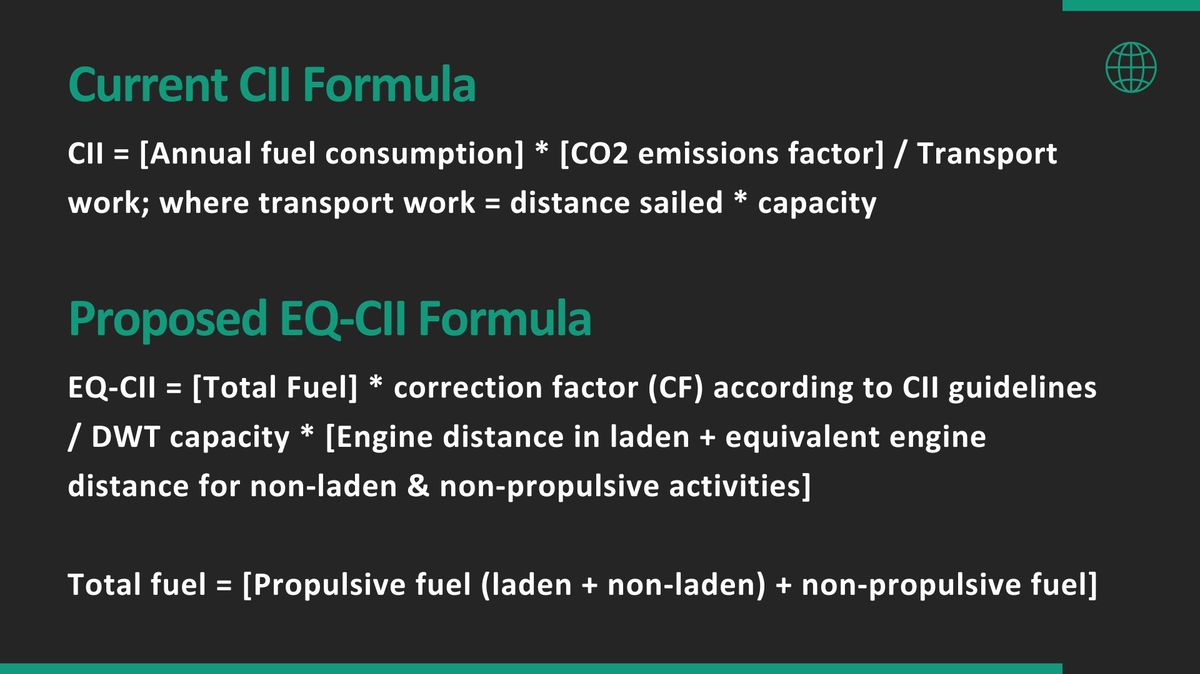MEPC 82: UAE and IPTA’s proposed CII metric draws criticism from India and Brazil
The proposed "EQ-CII" metric fails to differentiate between fuel losses due to broader logistical inefficiencies and those arising from a ship's own operations and maintenance issues, India and Brazil argue.
 PHOTO: Current CII formula vs EQ-CII formula proposed by the UAE and the International Parcel Tankers Association. ENGINE, DNV, IMO Docs
PHOTO: Current CII formula vs EQ-CII formula proposed by the UAE and the International Parcel Tankers Association. ENGINE, DNV, IMO Docs
The UAE and the International Parcel Tankers Association (IPTA) proposed a new formula for CII calculation that adds an assumed value for equivalent transport work into the denominator.
The assumed value for equivalent transport work will adjust for fuel losses due to factors beyond the ship’s control by estimating how far the ship could have travelled with that extra fuel under ideal conditions, according to UAE and IPTA’s proposal.
India and Brazil have now voiced concerns that the proposed EQ-CII metric does not differentiate between excess fuel losses due to delays and inefficiencies in the supply chain and those arising from the ship's own operations and maintenance issues.
“Including all non-transport consumptions in the EQ-CII would incentivize improvements in propulsion efficiency, but not other non-transport work-related consumptions,” the joint statement to the IMO reads.
Converting port and anchorage fuel consumption into "equivalent voyage distance" could undermine existing efficiency improvements, such as just-in-time arrivals and efficient port operations. It might also lead ships to use more fuel in non-transport activities to artificially boost their CII scores, the two countries argue.
“This can be seen from examples such as keeping two generators running even when the load is low during day/night at anchorage and especially between breaks during loading/discharging at port for the comfort of crew or not maintaining the cargo equipment to operate at maximum efficiencies.”
The countries further highlight that the “engine distance” value suggested in the denominator of the EQ-CII metric “will mask all inefficiencies related to poor maintenance of the propeller and hull” and could inadvertently incentivise poor maintenance practices to increase so-called engine distance.
As an alternative, India and Brazil suggest retaining a simpler CII calculation that focuses solely on voyages without including port and anchorage fuel consumption, which would encourage shipowners to improve their ships' operational efficiency.
By Konica Bhatt
Please get in touch with comments or additional info to news@engine.online






